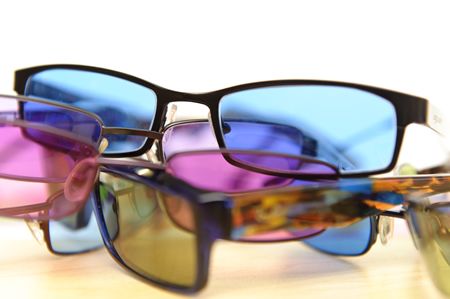 While Irlen Syndrome seems to run in families and many studies have noted hereditary markers, it is not purely genetic. It can also be caused by traumatic brain injury such as a concussion. The root cause of Irlen Syndrome seems to be a problem in the visual pathway between the eye and the brain, a problem that causes visual processing to fail to synchronize, which leads to perceptual dysfunction.
While Irlen Syndrome seems to run in families and many studies have noted hereditary markers, it is not purely genetic. It can also be caused by traumatic brain injury such as a concussion. The root cause of Irlen Syndrome seems to be a problem in the visual pathway between the eye and the brain, a problem that causes visual processing to fail to synchronize, which leads to perceptual dysfunction.
Researchers discovered another interesting correlation when delving into Irlen Syndrome. While approximately 14% of the general population may have Irlen Syndrome, that number jumps up significantly for people with a learning or reading difficulty. Nearly half of people in this category also have Irlen Syndrome, along with about 1/3 of people on the autism spectrum and 1/3 of those with a concentration or attention problem such as ADHD.
What causes Irlen Syndrome?
While Irlen Syndrome seems to run in families and many studies have noted hereditary markers, it is not purely genetic. It can also be caused by traumatic brain injury such as a concussion. The root cause of Irlen Syndrome seems to be a problem in the visual pathway between the eye and the brain, a problem that causes visual processing to fail to synchronize, which leads to perceptual dysfunction.
Researchers discovered another interesting correlation when delving into Irlen Syndrome. While approximately 14% of the general population may have Irlen Syndrome, that number jumps up significantly for people with a learning or reading difficulty. Nearly half of people in this category also have Irlen Syndrome, along with about 1/3 of people on the autism spectrum and 1/3 of those with a concentration or attention problem such as ADHD.
Irlen Syndrome may affect
- Academic and work performance
- Behavior
- Attention
- Ability to sit still
- Concentration
Symptoms may include
- Print looks different
- Environment looks different
- Slow or inefficient reading
- Poor comprehension
- Eye strain
- Fatigue
- Headaches, including migraines
- Difficulty with math computation
- Difficulty copying
- Difficulty reading music
- Poor sports performance
- Poor depth-perception
- Low motivation
- Low self-esteem
- Light Sensitivity






